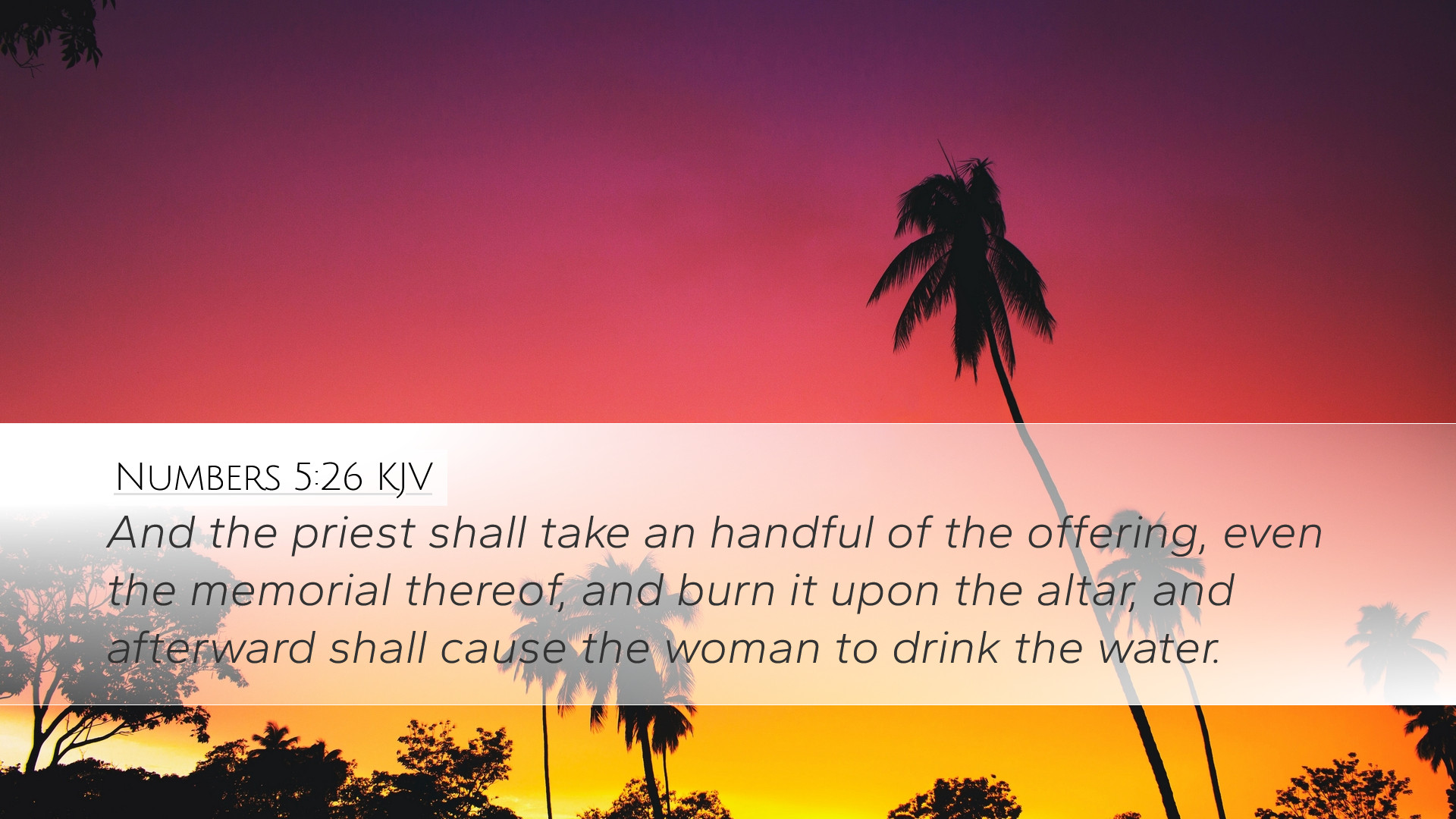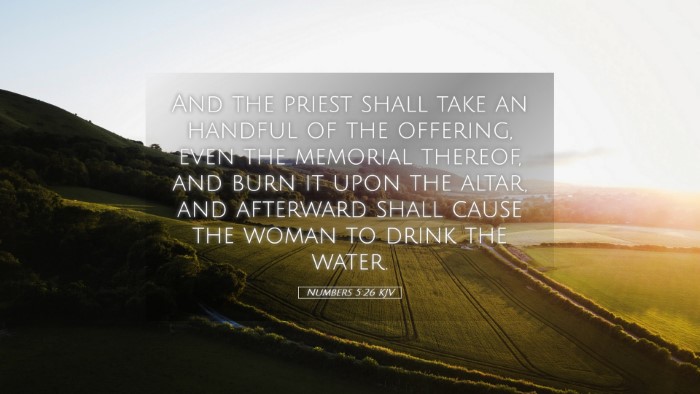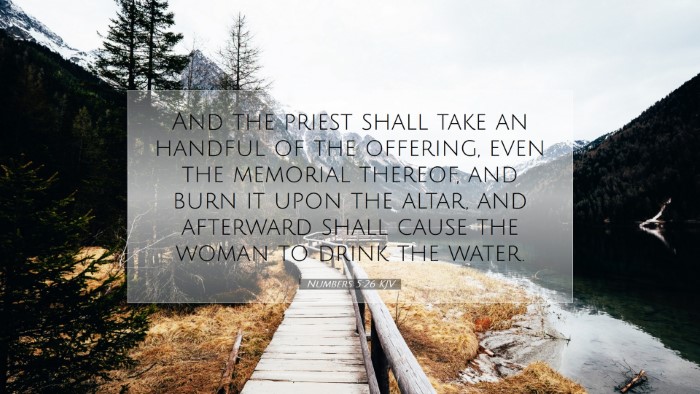Commentary on Numbers 5:26
Verse Citation: Numbers 5:26 - "And the priest shall take a handful of the offering, even the memorial thereof, and burn it upon the altar: and afterward shall he cause the woman to drink the water." (KJV)
Introduction
The passage of Numbers 5:26 is part of the larger context of the Laws concerning jealousy and unfaithfulness within the Israelite community. This specific verse occupies a crucial moment in the ritual for addressing suspected infidelity. In understanding this verse, we shall explore its theological significance, the ritualistic elements involved, and the insights offered by notable biblical commentators.
The Ritual of Jealousy
This verse is situated within the framework of a unique law that addresses the case of a wife suspected of infidelity (Numbers 5:11-31). The rite involves a priest, a jealous husband, and what is termed the "bitter waters." The ritual serves not only as a means of discerning truth but also highlights the seriousness of vows and marital fidelity in the covenant community of Israel.
1. The Role of the Priest
In comments by Matthew Henry, he indicates that the priest acts as a mediator between God and the people. The act of taking a handful of the offering signifies the priest's intercession. This portion symbolizes devotion and the acknowledgment of sin; it becomes part of a restorative process. Henry elaborates that the priest’s actions emphasize the importance of purity and faithfulness within God’s covenant.
2. The Meaning of the Offering
Albert Barnes suggests that the "handful of the offering" represents a memorial. It is presented before God, acting as a reminder of the community's need for holiness. Barnes highlights that burning the offering signifies the consumption of personal sin and the need for communal purity, as the community as a whole bears the weight of individual actions. The act of burning also illustrates the fiery judgment that could be rendered upon unfaithfulness.
3. The Bitter Waters
After the priest has completed the offering, the next crucial step involves the creation and consumption of the "bitter waters." Adam Clarke provides insight into the symbolism of these waters. He notes that they embody a divine mechanism to test faithfulness, serving as a means to reveal truth. The waters, when consumed, would either bring a curse or prove the woman innocent, showing that God is aware of the secrets of the heart.
Theological Implications
The provisions surrounding this ritual raise important questions about justice, gender roles, and divine scrutiny within the covenant community. The commentators reveal several layers of meaning:
- Divine Judgment: The act represents God's judgment and scrutiny over private affairs, underlining that no secrets are hidden from Him.
- Public Accusation and Defense: The process serves to clarify accusations in a public setting, wherein society bears witness to personal claims of fidelity.
- Reflection of Christ’s Intercession: The role of the priest prefigures the ultimate intercessor—Christ—who bears the sins of His people, offering them reconciliation with God.
Application for Today
For modern readers, especially pastors and theologians, this passage serves as a reminder of the importance of integrity and accountability in relationships. It emphasizes that jealousy and suspicion can lead to destructive outcomes unless addressed with truth and fairness. The process involving the priest invokes reflection on how conflict resolution is conducted within the church today:
- The necessity of reconciliation: Just as the ritual aimed to bring truth, active efforts toward reconciliation should be prioritized within church community dealings.
- Restoration of the sinner: The passage encourages a focus on restoration rather than mere accusation, reflecting the heart of the gospel.
- God’s omniscience: It serves as a sobering reminder of God’s ongoing engagement with humanity’s moral and ethical dilemmas.
Conclusion
Numbers 5:26, while situated in a context that seems distant from contemporary issues, richly unfolds the principles of justice, faithfulness, and divine oversight. Commentaries by Matthew Henry, Albert Barnes, and Adam Clarke together enrich our understanding of this verse, offering layers of insight for pastors, students, and theologians alike.


